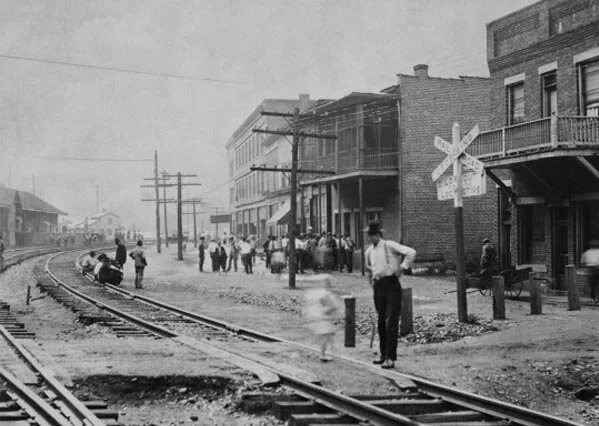Around midday on June 14th, 1921, a group of over 70 vigilante volunteers and officers with the newly-formed West Virginia state police surrounded the Lick Creek tent colony from all sides. State police and volunteers swarmed through the tents, knocking them down, breaking locks, slashing giant holes in the canvas, kicking over and destroying furniture, all while corralling miners, women, and children.
Striking miners had been living at Lick Creek since the summer of 1920, when the UMWA’s organizing push in Mingo County began in full force, causing coal operators to evict unionized miners from their company-owned homes. For roughly a year, the encampment was relatively undisturbed by the company.
That all changed in May 1921, on the 1st anniversary of the Battle of Matewan, when Governor Morgan of West Virginia declared Mingo County under martial law because of the unrest between unionizing miners and coal operators.
Under martial law, residents of Mingo were not permitted to assemble publicly, hold any demonstrations, publish materials critical of the authorities, incite violence, or possess any weapons. The law enforcement trio of Major Thomas B. Davis, captain of West Virginia state police James R. Brockus, and county sheriff A.C. Pinson were declared responsible for maintaining order in Mingo. Brockus arrived in Mingo with nearly all the state’s newly-formed police force with him. In addition to his officers, Brockus built a “Vigilance Committee” of civilian volunteers or “vigilantes” – entirely upper-class non-miners – to help enforce the dictates of martial law.
The law enforcement trio of Major Thomas B. Davis, captain of West Virginia state police James R. Brockus, and county sheriff A.C. Pinson were declared responsible for maintaining order in Mingo.
Brockus arrived in Mingo with nearly all the state’s newly-formed police force with him. In addition to his officers, Brockus built a “Vigilance Committee” of civilian volunteers or “vigilantes” – entirely upper-class non-miners – to help enforce the dictates of martial law.
Not long after the declaration of martial law, law enforcers’ attention was drawn to Lick Creek. In late May, an altercation between a group of miners and officers near the Big Splint Colliery resulted in the death of an officer. Hostilities rose. Then, on June 14th, there were reports that someone at the tent colony had shot at a car carrying the superintendent of the White Star Mining Company while it passed through the colony. Major Davis, Captain Brockus, and Sheriff Pinson headed out to the tent colony to investigate and were fired upon themselves. They returned shortly after with state policemen and vigilantes, prepared to raid. By the time the raid was over, Alex Breedlove, a striking miner, was killed. Martin Justice, miner and president of the tent colony, was injured, and another 47 striking miners were arrested.







